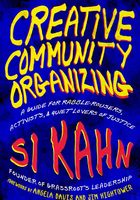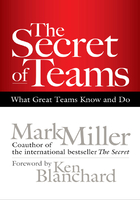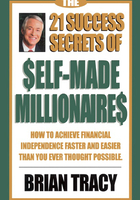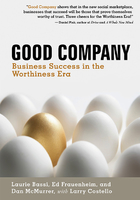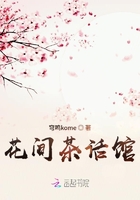ONE OF THE GREAT MOTIVATIONAL DISCOVERIES OF THE twentieth century is that people who coordinate and control their own work produce greater economic and social results than those who do not. Many leaders, though they might deny it, act as though they prefer control to results. How do we know? They impose coordination and control from above. They have never experienced the alternative: control from within.
Running large-group strategic-planning meetings in the 1990s, we soon recognized that we preferred results to control. We could not control scores of people working in the same room toward a plan that incorporates all of their experiences and aspirations. We found that we got the best results by focusing everyone on the same goal, creating structures for self-managing, and getting out of the way.
That way of leading proved harder than we imagined. Our biggest challenge was controlling ourselves-holding back, waiting, listening, opening doors, and letting people learn their own capabilities. Doing that meant setting the bar higher. We had given ourselves a new leadership challenge. We had to overturn the conventions we inherited. As we became more confident of consistent results, we began inviting others to try leading in new ways.
We have now helped thousands of people access the advanced skills presented here-"advanced" in the sense of adding new capabilities to your repertoire. These skills need not replace anything you do now. If you are trying some of them for the first time, however, you will indeed be "overturning convention" if you employ them to plan, organize, motivate, and control. We settled on eight core skills after much iteration. You could easily make our list longer.
These are skills that reinforce one another, that we could use anywhere, and that led people to do more than they dreamed they could. Best of all, we could bring them to bear on any given day. You can do likewise if you are willing to experiment.
But are you?
More than 50 years ago, Douglas McGregor, a professor at the Massachusetts Institute of Technology, wrote an all-time best seller, The Human Side of Enterprise. His was the famous Theory X, Theory Y book. McGregor described how our assumptions about human nature determine how we lead. Theory X assumes that most people are dependent, dislike work, and require close supervision. Theory Y assumes that most people enjoy work, want to learn, and welcome responsibility. Each theory is a self-fulfilling prophecy. The tighter the control, the narrower the jobs, and the less judgment people exercise, the more helpless, inept, and dependent they become.
"They act like children," says the boss.
"He treats us like children," say the employees.
By contrast, people who have discretion, broad skills, accurate information, and opportunities for growth motivate themselves. From birth we carry the seeds of both theories. Babies come into the world helpless and dependent-and also curious and eager to learn. When (unconscious) Theory X assumptions dominate an organization, they translate into dysfunctional policies, procedures, and structures. They discourage the behavior leaders want to instill.
On the other hand, we have seen people around the globe act out (unconscious) Theory Y assumptions. Under the right conditions, they rediscover natural impulses they had since birth, impulses nourished by unconventional policies, procedures, and structures. People respond to jobs that foster autonomy and growth. Structure includes determining who is allowed to do what. That is something you can control. It involves encouraging people to take initiative beyond their job descriptions. It means enabling communication up, down, and sideways, not just top to bottom. It means turning supervisors into coaches. It means insisting on integrating meetings between departments rather than putting up with silos.
Much organizational conflict is structural. People act the way their jobs require. Salespeople emphasize interpersonal skills. They spend time in small talk before getting down to business. Production workers relate to their machines. They skip the small talk and solve the problem. The structural strategy is to encourage people to maintain their functional differences. This includes appointing people to integrating roles, using project coordinators, and having cross-functional mechanisms such as product teams and ad hoc problem-solving teams that head off conflict.
Creating Optimal Structures Requires Leadership
In this book we show how to develop the following skills:
Gain more control by controlling less
Get others to share responsibility
Change the structures under which people interact without struggling to change the people
Demonstrate how getting the "whole system" to explore the "whole elephant" leads to high motivation and fast implementation
Use anxiety and authority projections to build respect and improve teamwork
Resolve conflicts and lead people to find where they are 100 percent in agreement
Experience what you can accomplish by trying out actions that may not come naturally
Throughout the book we emphasize a stubborn reality: Change means doing something you never did before.
That is the message from ordinary leaders in business, education, health care, and community building who discovered new capabilities in themselves. We quote them throughout the book. You may find changing structure ahead of behavior a stretch if you are used to managing personal styles, attitudes, motivations, and extrinsic rewards.
The Eight Leadership Skills
Lead More, Control Less has eight chapters. Each chapter advocates an advanced leadership skill and principles of action that you can try out every day:
1. Control Structure, Not People
2. Let Everyone Be Responsible
3. Consider Anxiety "Blocked Excitement"
4. Avoid "Taking It Personally"
5. Disrupt Fight or Flight
6. Include the Right People
7. Experience the "Whole Elephant"
8. Surface Unspoken Agreements
We invite you to travel with us down a road where people perform better the more you let go. If you go far enough, you will discover higher performance, greater self-control in others, and greater freedom for yourself. When you see the results you are getting, you will need no further proof.


